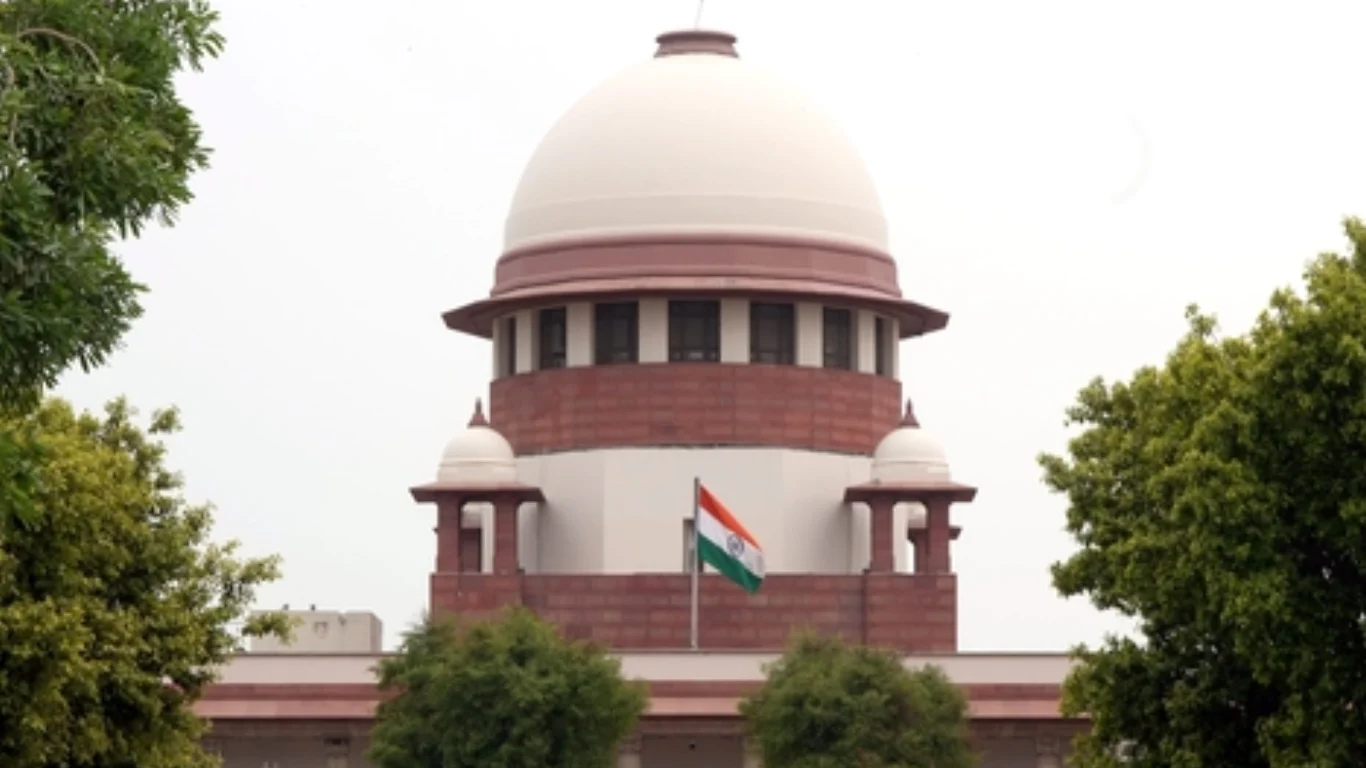
The Supreme Court on Thursday declined to entertain a Public Interest Litigation (PIL) that sought a judicial inquiry into the recent terrorist attack in Pahalgam, Jammu and Kashmir, emphasizing the need for national unity and cautioning against actions that could potentially demoralize the armed forces during such a critical period. The attack, which occurred on April 22 near the tourist destination of Baisaran in the Pahalgam region, claimed the lives of 26 people, including a local resident, and has since triggered widespread condemnation and heightened security measures across the Union Territory.
The PIL, filed jointly by three residents of Jammu and Kashmir—Fatesh Kumar Shahu, Mohammad Junaid, and Vicky Kumar—urged the apex court to direct the central government to establish a judicial commission led by a retired judge, or alternatively, form a Special Investigation Team (SIT) comprising independent experts to probe the circumstances surrounding the attack and ensure accountability on the part of relevant security and intelligence agencies. However, a bench comprising Justices Surya Kant and N Kotiswar Singh took strong exception to the nature of the plea, rebuking the petitioners for what the court described as a potentially irresponsible move in a time of national crisis.
“This is the crucial hour when each and every citizen of this country has joined hands to fight terrorism. Don’t make any prayer that can demoralise a person. Look at the sensitivity of the issue,” the bench remarked, underscoring the court’s position that such a petition could have a demoralizing effect on the security forces who are risking their lives daily in combating terrorism on the ground. The justices further stated, “Be responsible. You owe some duty towards the country. Is this the way… Please don’t do this. Since when has a retired high court or Supreme Court judge become an expert to investigate such issues (terrorism)? We are not entertaining anything. Please go wherever you want to go,” thereby signaling the court’s unwillingness to second-guess the ongoing official investigative processes or to set a precedent of judicial intervention in sensitive counterterror operations.
The court permitted the petitioner, Fatesh Kumar Shahu, who was present in person, to withdraw the plea voluntarily. The petition had also named the Union of India, the Government of Jammu and Kashmir, the Central Reserve Police Force (CRPF), and the National Investigation Agency (NIA) as respondents, seeking directions to these agencies to formulate and implement a comprehensive action plan to enhance the security of civilians and tourists in vulnerable areas of the Union Territory.
The Pahalgam terror attack has sent shockwaves across the nation, not only for the number of casualties involved but also for its timing and the symbolic targeting of a peaceful and heavily visited tourist area, potentially intended to instill fear and disrupt the region’s recovering tourism economy. Following the attack, security forces across Jammu and Kashmir have intensified counterterrorism operations, with increased patrolling, area domination drills, and intelligence coordination between central and local agencies. Officials have indicated that the attack bore the hallmarks of a well-coordinated operation likely supported by cross-border elements, renewing concerns over infiltration and sleeper cell activity in the region.
National outrage over the incident has spurred a broad political and public consensus on the need for a firm and united response. Prime Minister Narendra Modi and Union Home Minister Amit Shah both condemned the attack and assured that those responsible would be brought to justice. Meanwhile, the armed forces have been granted full operational freedom to respond to threats in a manner they deem appropriate, and several diplomatic measures have been initiated against Pakistan, which India holds accountable for supporting terrorism in the region. Amid this high-stakes context, the Supreme Court’s comments serve as a reminder of the judiciary’s restrained role in matters pertaining to national security, where operational expertise, intelligence sensitivity, and field-level coordination often lie beyond the scope of judicial oversight.
The justices’ observations also reflect the broader institutional consensus that while judicial remedies are vital in upholding rights and liberties, extraordinary situations such as terror attacks necessitate a measured and unified national posture rather than potentially disruptive litigation. The petitioners had also argued that tourists and civilians in the Valley remain vulnerable to similar attacks and called for a systemic review of existing security protocols in tourist-heavy zones.
However, government sources indicate that such measures are already under evaluation, with multiple agencies working on a revised threat assessment and mitigation framework post-Pahalgam. The Home Ministry is reportedly coordinating with Jammu and Kashmir police and central paramilitary forces to reinforce high-footfall locations, install more surveillance infrastructure, and deploy quick-reaction teams (QRTs) at strategic nodes. While the court refrained from questioning the motivations of the petitioners, the firm rejection of the PIL highlights a broader debate in Indian democracy—balancing civic activism and institutional accountability with the demands of national security and collective morale.
In their closing remarks, the justices reiterated that the security forces deserve unequivocal support from every quarter of society during such testing times, and any judicial or public intervention should be mindful of the larger implications on their morale and effectiveness. As India continues to face persistent threats from terrorism, particularly in regions like Jammu and Kashmir, the need for solidarity across institutions, communities, and citizens becomes even more critical.
The judiciary’s stance, as demonstrated in this case, reinforces the principle that judicial forums must not be used to undermine the confidence or authority of those on the frontlines of national defense, even while recognizing the essential role courts play in protecting fundamental rights. For now, the investigation into the Pahalgam terror attack remains within the jurisdiction of law enforcement and counterterror agencies, who continue their pursuit of the perpetrators while bracing for potential further threats in an increasingly volatile environment.

















